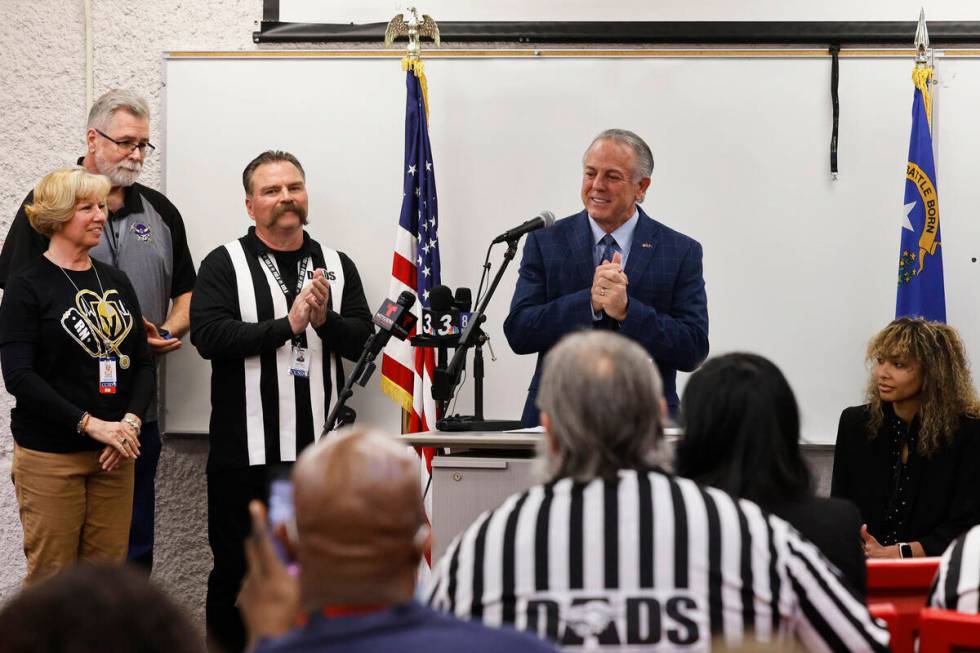VICTOR JOECKS: Lombardo’s discipline bill has a poison pill

Following Gov. Joe Lombardo’s demands on school discipline could get schools in trouble.
Last Thursday, Lombardo personally testified on his school discipline proposal, Assembly Bill 330. Speaking before the Assembly Education Committee, Lombardo made a case that the current approach to school violence isn’t working.
“Since 2019, there has been a 46 percent increase in violence and sexual assaults reported within the Clark County School District,” he said, adding, “Last year, there were over 6,800 violent incidents reported at CCSD schools within a seven-month period.”
In 2019, the Legislature made it more difficult for schools to suspend or expel students. Instead, politicians mandated restorative justice, which is a non-punitive approach. As students realized schools wouldn’t discipline them for misbehavior, violent and disruptive behavior exploded.
It wasn’t just students who were brutalized. There was the horrific attack on a teacher at Eldorado High School. Lombardo held an event Friday at Valley High School to promote his bill. That teacher attended, along with other teachers affected by school violence.
Lombardo is putting a lot of political capital into this proposal, and rightly so. It’s good politics and important on the merits. As Lombardo noted, students and teachers “deserve to feel safe at school.” There are other consequences, too. Students don’t learn as well when they’re worried about their physical safety. Violence contributes to the district’s teacher shortage.
The governor has proposed some good reforms. His bill would make it easier to remove students who pose a danger to others or who disrupt classrooms. It would strengthen punishments for students who do bodily harm to teachers. Instead of “restorative justice” healing circles, students would face expulsion.
But while Lombardo’s rhetoric is right on the money — he called for “zero tolerance for school violence” — other parts of the bill are problematic. Schools heeding that call could face scrutiny from state government under his plan.
That’s because Lombardo’s bill requires schools to report data on who is punished. If the data “indicates disproportionality in disciplinary actions,” the state superintendent of public instruction can eventually “issue an alternative plan” for school discipline. Monitored categories include race, sex, low-income, foster children and homelessness.
The main reason the Legislature passed restorative justice was concern over racial disparities in disciplinary outcomes. Even before that, Superintendent Jesus Jara pushed for fewer suspension and expulsions because of equity concerns.
But people aren’t statistical categories. They’re human beings who are influenced by many factors and make their own decisions.
Lombardo should know this better than most. He was sheriff of the Metropolitan Police Department in 2021, when FBI crime stats show that Metro disproportionality identified African Americans as perpetrators of crimes. Lombardo would be outraged if someone used that to accuse him of running a racist department. Yet that’s the standard he wants to impose on schools. Charter schools should be especially concerned about how a future governor could use this authority.
Lombardo’s plan to address school violence shouldn’t rest on the faulty assumption that led to the current surge in violence.
Contact Victor Joecks at vjoecks@reviewjournal.com or 702-383-4698. Follow @victorjoecks on Twitter.